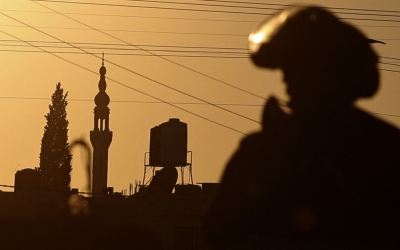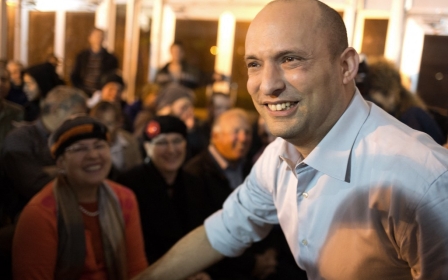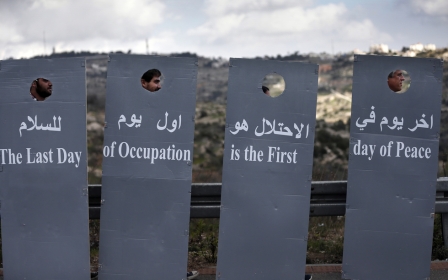UK court hears asylum appeal from Israeli student refusing to serve in army
A Manchester tribunal on Wednesday heard arguments in the case of an Israeli rabbinical student who is seeking asylum in the UK because he fears he will be forced to commit war crimes if he is conscripted into the Israeli army.
The 21-year-old student, who has been granted an anonymity order, fled Israel in 2017 after he received a letter requiring him to report for military service.
The student has previously been beaten and spat on by Israeli police officers and also sprayed with skunk water for taking part in anti-Zionist protests, according to a briefing note about the student's case.
He rejects Zionism and Israel's existence based both on his political beliefs and on his ultra-Orthodox faith, which teaches that Jews should not return to Palestine until the return of the messiah.
If forced to serve in the military, his lawyers argue that their client is specifically concerned that he would be coerced to commit the crime of apartheid among other crimes against humanity.
His initial asylum claim was refused by British Home Secretary Priti Patel in December 2020, a decision his legal team appealed in a four-hour hearing in front of Judge John McClure on Wednesday.
Barry McBride, representing the Home Office, argued that the student is not at risk of being conscripted into the Israeli army because his father applied for an exemption on the grounds that his son has been diagnosed with Asperger's Syndrome.
McBride also stressed that the student's anti-Zionist convictions only solidified once he arrived in the UK when he became "radicalised" and was sectioned in a mental hospital.
The Home Office, McBride argued, believes the student will be best served receiving treatment in Israel with the support of his family, who have come to visit him in the UK since he arrived.
'Borders on anti-Semitism'
The student's barrister, Franck Magennis, however, argued that his client's political and religious convictions had been consistently conflated with mental illness, which "borders on anti-Semitism".
Magennis also asserted that there is no proof that his client's father successfully applied for an exemption and there is no guarantee that a fresh conscription order wouldn't be issued if the student was deported to Israel.
"Even if he is exempted from Israeli military service, which is not accepted, there is no reason to believe he will be exempted from civil service and thereby implicated in committing the crime of apartheid," Magennis said.
Instead, he argued, testimony from expert witnesses submitted to the court suggest the student will be treated as a deserter and held for 30 days in prison while his status is investigated.
One of the witnesses, Noa Levy, an Israeli lawyer who defends conscientious objectors, submitted a report detailing how her ultra-orthodox clients have been subjected to violence and abuse after refusing to serve in the army.

Levy said her clients have been seized from their homes in nighttime raids, stripped naked, forced to sit in puddles of urine, threatened with sexual violence and deliberately exposed to toxic fumes for hours at a time.
While serving the Israeli military has been compulsory since the establishment of the state in 1948, ultra-orthodox Jews have historically been exempt from service and, instead, studied in yeshivas, or Jewish religious schools.
But changes to the military service law in 2015 have since seen the arrest each month of dozens of yeshiva students, often at night, who are then detained in Israeli prisons over their refusal to serve, Levy said in her submission.
The case has the potential to impact future asylum cases through what are known as country guidances, produced to help judges and Home Office officials understand the risks associated with particular countries and conflicts.
The Upper Tribunal - the court which hears immigration and asylum cases refused by a first-tier tribunal - can make findings about countries and conflicts that are then binding.
The Israeli-Palestinian country guidance has not been changed since 2007 and does not reflect the systematic discrimination faced by Palestinians and their supporters, according to lawyers who would like to see it changed.
A hearing in September was quickly adjourned after the tribunal failed to provide a Yiddish interpreter, offering a Hebrew translator instead. While the student understands Hebrew, he prefers for political reasons not to use the official language of Israel.
Judge McClure said he would make a ruling "in due course", but that the volume of evidence in the case, including over 4,000 pages of medical records, likely means he will need more time to make his judgement than with an average immigration appeal.
Middle East Eye delivers independent and unrivalled coverage and analysis of the Middle East, North Africa and beyond. To learn more about republishing this content and the associated fees, please fill out this form. More about MEE can be found here.





